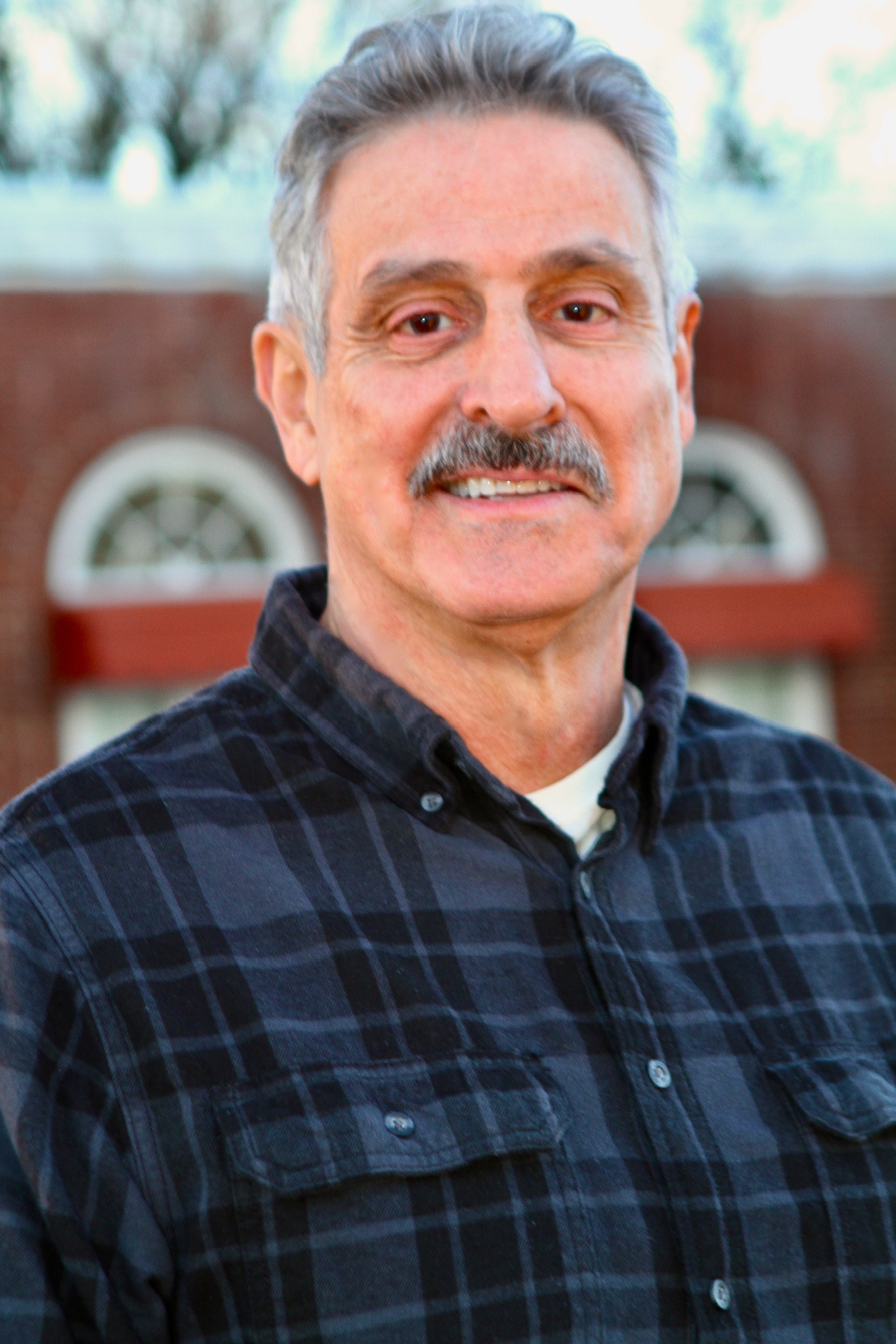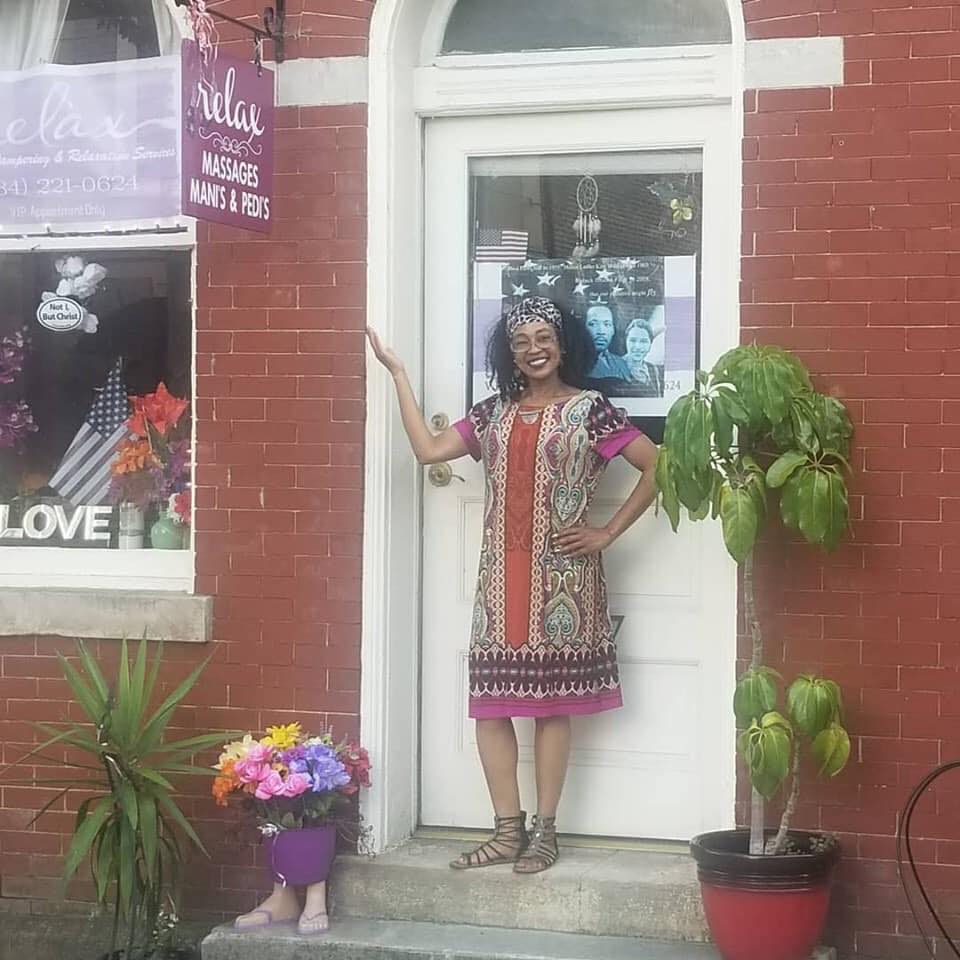Want to see where the Lynchburg candidates stand? You can look up their positions in our Voter Guide.
Despite a particularly crowded roster of candidates for Lynchburg City Council this year, Ward IV residents will find just two names on their ballots even though four people are running active campaigns.
Republican Vice Mayor Chris Faraldi is relying on his record from his first term on council as he faces Democratic challenger April Watson and independent write-in challengers Peter Alexander and Michelle Lee Harvey.

The ward has leaned reliably Republican in the past, but Faraldi faces challenges from the right — something Hill City residents are becoming accustomed to as they’ve cycled through 5th District Republican representatives. Faraldi won the primary against Alexander by 33 votes only for Alexander to re-emerge as an independent after a brief legal challenge, and fellow Republican council member Marty Misjuns has attacked him on social media and email newsletters.
Regardless, Faraldi expressed confidence in his reelection, saying he considers it a “one-way race” where Republicans will turn out in high numbers to support him and others up the ballot. He said it’s taken about a year and a half to find his stride as a member of council, and his constituents have expressed support for his approach.
“It’s been a diligent effort to maintain my conservative principles that I hold dear, that I think broadly Lynchburg supports, while at the same time ensuring that we are effectively governing the city and not being so dogmatic in our approach that nothing actually gets done,” he said. “That’s been, I think, the component of my growth in this role that I think people are buying into.”
Watson has run in the Lynchburg Better Together slate of Democratic candidates, pooling resources and promising more civility on a council that’s been wracked by heightened tensions and personal attacks — in large part between Republican factions that have emerged over the past two years.
She’s a licensed clinical social worker and deputy director of human resources for the city who was born and raised in Lynchburg and has been on the schools’ academic success committee for the past year. With a long history of working for different populations across the city, she said she’s a solutions-driven advocate in matters that directly affect citizens’ day-to-day life.
“Really a lot of this is me knowing this community well … and seeing it for so long with so many of these systems and programs starved for funding and cash and real solutions, and wanting to be a voice for those systems,” she said.
Alexander’s campaign has framed him as running to the right of Faraldi, garnering support from the Lynchburg City Republican Committee, Misjuns and outgoing council member Jeff Helgeson. He sued Faraldi personally over his primary loss, leading to a dust-up on city council, then withdrew the lawsuit and decided to push ahead as a write-in.

In an interview, he said Ward IV residents want him, a “true conservative,” despite election year proceedings forcing him to resign from the LRCC to run as an independent. He reiterated claims that almost 300 Democrats voted in the primary, meaning he actually won the Republican vote, yet said later in the interview that “I know some Democrats voted for me.”
A regular attendee at public meetings and events, Harvey has campaigned in large part on personal social media accounts. Described on her personal Facebook page as a massage therapist and U.S. Army veteran, she posts frequently about social support in the city for survivors of domestic abuse, housing and school matters, though her specific stances on the issues aren’t quite clear.
Priorities and issues
In a ward that’d see the most profound impact of recommended closure for Sandusky Elementary School, most of the candidates have put the schools front and center in their campaign, although they acknowledge the council’s limited scope in making those decisions.
Watson has echoed her fellow Democrats’ (and other independent candidates’) view that council shouldn’t be micromanaging the school board or its budget, and has pushed for an enhanced interview process for school board candidates “who are truly seeking to represent the community and serve our children well,” which will come up before council in June.
“It’s important to me that we property fund Lynchburg City Schools,” she said. “That doesn’t necessarily mean throw billions of dollars at the schools, but it means we take time to sit down, have a real conversation and really as a community identify some of those strategies, identify our priorities and where we want to be and we then move that way.”
Part of that includes ensuring that Lynchburg’s teachers “are some of the best-paid teachers around,” and Watson decried “level funding” not taking into account increasing teacher workloads and inflation.
A mother of three children in LCS, she said she’d want to see more opportunities for parent and student representation in more informal meetings to help tackle the prospect of school closure and that any decisions made in that regard should come with a thorough, concrete plan for zoning.
Faraldi said the school infrastructure question will be met with tough conversations and important decisions, and said he prioritizes supporting schools over beautification projects and other big ticket Capital Improvement Plan items. Reiterating that he’s committed to lower taxes and has consistently voted against capital spending, he said he wants to see council “reining in focus” on budget priorities.
He questioned Watson and the rest of the Democratic slate framing themselves as champions for city schools when, in the past, a more liberal city council punted Sandusky renovations and didn’t deliver on meaningful teacher raises. He credited Republican leadership for bumping starting teacher pay from under $39,000 to around $48,000 and voiced support for “prioritizing the classroom over administration,” a common refrain among Lynchburg’s conservative council members and candidates.
“I have yet to hear from our opponents what they’ll actually do to make an impact on these fronts,” he said.
From within council, Misjuns has put Faraldi on blast for, among other things, supporting construction of a new Sandusky Elementary School and predicted a “Faraldi tax hike” to pay for it. Faraldi disputed that, insisting that the funding would come from amending spending on the CIP.
Alexander acknowledged that he doesn’t know enough details about the school closure propositions to speak to future plans, but said, “if we have declining student enrollment, we have to act on it.” He blamed Faraldi for what he perceived as spending bloat on school administration and held that pay increases only reached teachers “when Republicans took office” two years ago, apparently referring to the at-large election where Misjuns was elected.
More generally, Alexander voiced support for teachers and school safety, and repeatedly emphasized that “DEI shouldn’t be taught in schools,” referring to “diversity, equity and inclusion,” something that Gov. Glenn Youngkin banned in an executive order.
When asked about his solutions to Lynchburg’s most important issues, he spoke at length about the importance of public safety and drew from his experiences working for the New York Police Department. He praised the community policing model to rebuild trust in law enforcement while espousing a “zero tolerance” policy for offenders, crediting Rudy Giuliani’s policies while serving as mayor of New York City in the ’90s.
Faraldi held up record low vacancies among Lynchburg’s public safety agencies as a testament to the results he can produce while on council.
Watson prioritized a proactive approach to public safety, saying she wants to broaden the narrative around the matter and focus on preventative measures. To that end, she advocated for a previously absent local match to state funding for more and better-paid social worker positions.
The politics of politics
With such a contentious and winding path to Election Day, navigating the waters of who’s who among Lynchburg Republicans has been a muddy business.
The LRCC announced moves last month to revoke the “R” from Faraldi and Mayor Stephanie Reed, though Faraldi is still the sanctioned Republican candidate by the state party, which has taken a few stances at odds with LRCC over the past year or so. That meeting has now been put off until after the election.
When asked whether he has concerns that his write-in campaign will split the conservative vote in Ward IV, Alexander said area Republicans have told him they’d rather have a “honest liberal than a lying Republican” and that the backstabbing would end if either he or Watson were elected.
In a sign of the division among Lynchburg Republicans, state Republican Party chair Rich Anderson released a statement Monday re-iterating that Faraldi is the party’s nominee: “I and the Republican Party of Virginia stand strongly with Chris Faraldi as our only official candidate in Ward IV. This conservative will fight for public safety, economic growth, and educational opportunity.“



